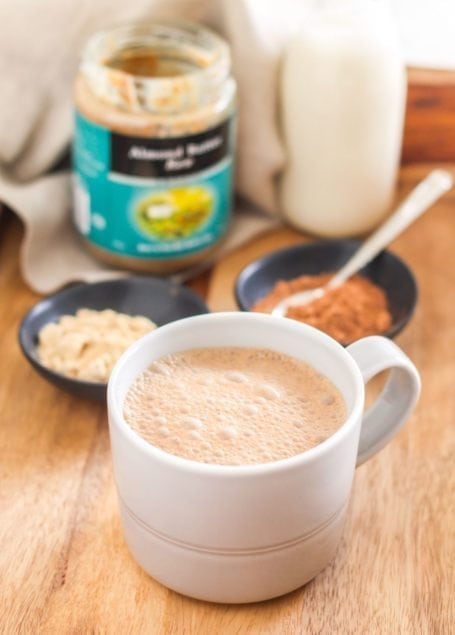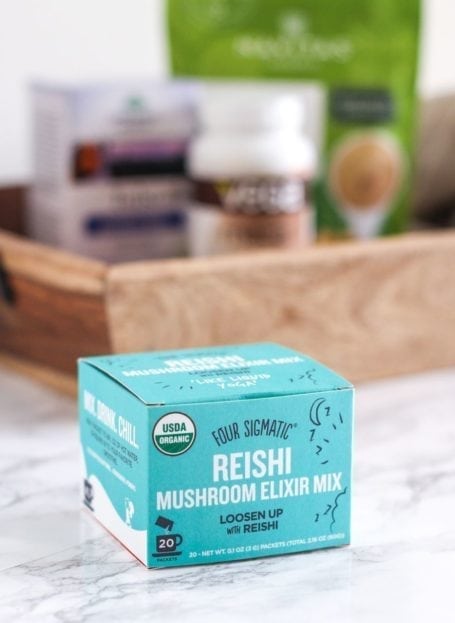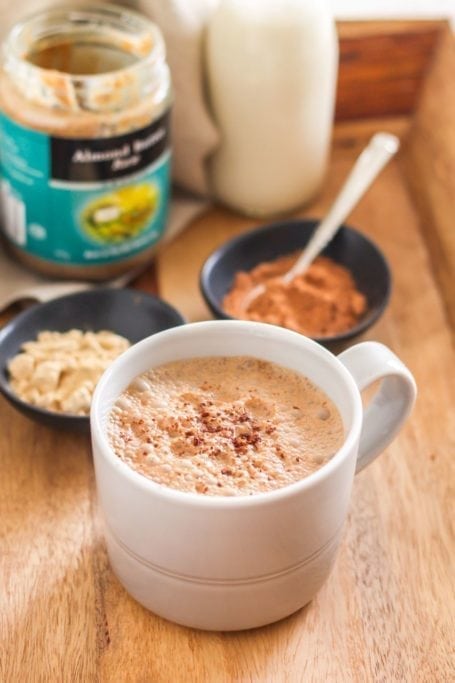If you’ve been hanging around here for any length of time, you’ll know I love to sweat. I’m willing to bet that you do too, and no matter what your favourite way to do it is, you know it’s hard to find anything that delivers a comparable endorphin high. For me, feeling my body move, my muscles come alive and the oxygen in my lungs – it’s a pretty darn wonderful thing.
Despite all the physical, mental and social benefits, working out is a form of physical stress – good to an extent, and harmful if taken too far. ‘Fight or flight’ describes a state where the nervous system is stimulated and we’re very mentally alert, and it’s a good place to be if you’re just about to run a 10K or attack a big workout. But as we all know, too much stress – physical or otherwise – isn’t ideal and it affects us outside of athletics. There’s also mental and emotional stress, plus physical stress that comes along with a poor diet (over-eating, under-eating, or just eating the wrong things) and lack of sleep.

Chronic stress – that ongoing kind that never seems to go away – can have negative impacts on the thyroid and adrenals, and those are two glands responsible for a lot of important processes in our body that we don’t want to mess with! Together they regulate our hormones which, in turn, affect our energy levels, weight, metabolism, mood, temperature regulation, sex drive and so much more. It’s a shame, but these days thyroid issues and adrenal fatigue (the term given to cases where the adrenals can’t pump out enough hormones to keep up with the body’s demand for them) are becoming more and more common.
Cortisol (our stress hormone) that’s too high for too long can lead to all sorts of nasty situations – carb cravings, fatigue, weakened immunity, loss of bone density, weight gain, hypertension… a whole bunch of yuck. Obviously, it’s important to find ways to keep it under control. As someone who keeps a pretty busy schedule and regularly has a lot on my plate, this is definitely something I’m always in need of reminders to do! Things like meditation, taking time to relax, getting enough sleep and other lifestyle-related routines are an easy (and often free) way to do it, but if you want to supercharge your cortisol-lowering approach, you should know about adaptogens.
An adaptogen is a plant that can help bring the body back to homeostasis – or in non-science terms, its happy place. What’s awesome about them is that they don’t always bring cortisol down, nor do they always have the same effect on a person’s body every time. The beauty of adaptogens is that they help each person’s unique body appropriately respond to any stress at any time. If you feel gross and tired, adaptogens can help boost you back up. On the other hand, if you feel wired, stressed and anxious, they can help calm you down. Pretty cool, right?
There are a whole bunch of plants with adaptogenic properties1, but today let’s chat about 5 of them made famous for their stress-reducing superpowers. I’ve also got a Stress Busting Adaptogen Latte for ya if you hang on till the end. ?

Disclaimer: Although I love geeking out on adaptogens, I’m not a doctor or a functional medicine practitioner. Before taking any supplements, be sure to consult with your doc and determine which ones are right for you.
Reishi
Reishi is a medicinal mushroom, but not the kind you’d toss in the wok with your other stir fried veggies. In addition to helping the body cope with stress, it’s also an immune modulator which means that it can help the immune system operate in a more balanced way2. Reishi is also one of the adaptogens studied for its anti-cancer benefits, but like many supplements and herbs, more studies are needed to verify its effectiveness.3

While available in capsule form, my favourite way to get my reishi fix is through Four Sigmatic’s Reishi Elixir. It dissolves instantly in hot water and I love winding down at the end of the day with a cup of it before bed. (Canadian friends, you can get it here for 10% off using ESR10 at checkout.)
Maca
I’ve talked about this one a lot in the past as a smoothie mix-in, and these days you’ll also see it incorporated in dark chocolate (this one from Vega is delish!), bars, and superfood powders. Maca is a root native to Peru and grows in some extremely harsh conditions. It can boost libido and mood, stabilize energy levels and hormones, and overall, make us feel more calm and stable.

Maca has a subtle nutty, almost caramel-y taste, so the powder is just as good in smoothies and hot drinks as it is energy bites and bars. If none of these sound like convenient options for you, it’s also available in capsule form.
Holy Basil
Not to be confused with the basil in your caprese salad, or favourite pesto, holy basil is also known as tulsi and has been used in Ayurvedic medicine for managing hypothyroidism and anxiety, supporting the adrenals, and reducing acne. It’s considered “The Queen of Herbs” in India, and with all its benefits, I’d say it’s deserving of the name! Studies suggest it can help the body cope with stress and anxiety, boost immunity4,5, and regulate blood sugar and hormones.

The most common way I’ve seen holy basil sold is as tea, and while it’s not one of my personal favourite tastes, the good news is that there are plenty of flavours available. If you really want to supercharge your get-zen-now efforts, look for a tulsi tea with licorice root, which happens to be an adaptogen and beneficial for digestion. Win-win!
Ashwagandha
This one’s also known as Indian ginseng, but ashwagandha is a much more fun word to say to let’s stick with that! Also a popular one in Ayurvedic medicine, ashwaganda is most often used to reduce stress and anxiety (and depression that comes as a result), as well as to support the immune system and encourage higher-quality sleep. The studies on ashwagandha are pretty strong relative to other adaptogens when it comes to reducing cortisol and stress symptoms, and there’s also good evidence for its ability to lower blood pressure, blood sugar and fatigue.6
As far as how to take it, capsules, tablets and tinctures are common. The tinctures (in my opinion) don’t taste awesome, but I like to think it’s kind of like the old Buckley’s saying that the worse it tastes, the better it works. You’ll also find ashwagandha in powder form which is good in lattes and smoothies, and some sports nutrition products. Personally, I’m currently trying Garden of Life’s Dr. Formulated Mood+ Probiotic, which contains not only ashwaghanda, but 50 billion CFUs from 16 different probiotic strains. Our gut and mood are so closely linked that the gut is commonly referred to as our second brain, which is why I love that there’s digestion-friendly probiotics and stress-reducing ashwagandha in here.
Rhodiola
Rhodiola is a herb used that has been used for years in Chinese medicine. (Is it me, or is everything about Chinese medicine always old?!) Anyways, it’s been studied and shown to be effective for reducing the exhaustion from chronic stress – both mental and physical.7,8,9 It has a slight stimulating effect, but not the same spike-crash/jittery kind that caffeine can have.
Like ashwagandha, it’s common to see rhodiola in tablet, tincture and capsule form, as well as various stress management/cognition-enhancing supplement blends.

Right, now that you’ve had your adaptogens 101 lesson for the day, let’s talk about that latte. While herbal tinctures leave a lot to be desired from a taste perspective, lattes on the other hand, are downright delicious. This is one I absolutely LOVE to sip on a Saturday morning because…
- The maca and reishi help to shake off stress from the work week
- Maca also provides a slightly energizing boost, and an added nutty, caramel-y flavour
- Almond butter and almond milk make it nutty and delicious
- Raw cacao powder adds extra antioxidants and triggers our bodies to release serotonin, our natural feel-happy neurotransmitter
- Cinnamon makes it extra cozy and comforting, while also adding subtle sweetness and helping to balance blood sugar
Ready to give it a shot? Here’s the recipe:
Stress-Busting Adaptogen Latte
Prep Time: 10 mins
Cook Time: 0 mins
Ingredients (1 serving)
- 1 cup unsweetened almond milk
- 1 tbsp almond butter
- 1 tsp raw cacao powder
- 1 tsp maca powder
- 1 tsp reishi powder
- 1/2 tsp cinnamon
- maple syrup, to sweeten as needed
Instructions
Warm the almond milk in a small saucepan on the stove. (It’s ok if it separates as you do this.)
Transfer the milk to a blender (ideally a heat-safe one like the Vitamix), along with all remaining ingredients. Blend until completely smooth.
Add maple syrup to sweeten, if desired.
Pour the latte into a mug and top with an extra sprinkle of cinnamon or cacao powder before serving.
Note: This latte is also lovely as a before-bed drink because of the relaxing effect of reishi, but I recommend omitting the maca as it’s naturally energizing.
Click here to print the recipe.
[Tweet “Feeling frazzled? Melt away stress with this DIY adaptogen latte recipe”]
So tell me… what are some of your favourite adaptogens? Have you tried many, or do you use any regularly? If you’ve got recipes to share, feel free to link them up!


This is such a good educational post. I have heard a lot about Ashwagandha but not as much about the other ones. My favourite is MACA enjoyed in chocolate. 🙂
Hello,
First, excellent write up. I cannot wait to try this latte. I am writing for several reasons that I am hoping you can assist me with. .
• To begin with, I heard about adaptogens about a year or two ago when I first learned even raw garlic (this has changed my life for colds and fighting other ailments) and honey.
o Then I heard of the Chaga mushroom which I have yet to try- thoughts on it? Best ways to eat it, best form etc.?
• I am trying to be healthier each year. One concern I have as I dip into trying alternative foods are side effects, I once had a bad experience with Kava, someone gave me the wrong thing it should have been Gaba and they told me they were similar (this was at Wholefoods- to note they are nothing alike) . Anyway, I try to do my research but feel so overwhelmed by the mixed messaging I find out in the internet and end up discouraged and often times don’t try something out until it becomes more main stream and clear on how it can affect a person. At the end of the day I am a mother breast feeding an infant, so I have a few more concerns about trying new foods.
o That being said this can you think of any reasons the five adaptogens in this Latte might be something I should be cautious about for breast feeding? My only thought is the Match (caffeine- which in low amounts is fine). I do realize you are not a doctor or nutritionist. I feel your explanations here were really helpful.
o Do you have any other suggestions of sites or books where I can find out more information about healthy eating styles and using adaptogens etc. I would love to learn more.
• One last item, I always hear about whole wheat how it is good, and it is bad (i.e. whole wheat belly). What are your thoughts?
Thank You!
Nicole L.